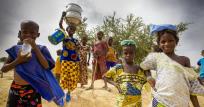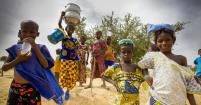

Mali Builds Climate Resilience with Solar PV
Newsletter
Mali contributes to less than 0.1 per cent of the world’s greenhouse gas (GHG) emissions. However, like any other countries in the West African Sahel region, Mali is strongly affected by climate change, raising temperatures and drought. In response, Mali’s National Adaptation Programme of Action has identified electricity as the third most vulnerable sector to climate change, after agriculture and health.
In September 2019, Mali concluded a Renewables Readiness Assessment with IRENA’s support. The assessment concluded that indigenous energy resources, such as solar energy, could help to boost climate resilience. The country-led consultative process underlined the need to encourage private investment in renewables, both on and off the national grid. Along with building climate resilience, diversifying the power generation mix could create considerable socio-economic value for the country.
An IRENA member since 2010, Mali depends on large hydropower, much of this from the Niger River. The hydrological regime, which until recently amounted to nearly 1000 millimetres per annum, could fall below 850 millimetres by the end of the present century. While hydropower accounts for half of installed power generation capacity, the other half is from fossil fuels, making electricity the country’s highest GHG-contributing sector.
Mali has considerable potential to develop other renewable sources including solar and wind. Southwestern Mali alone has 53 gigawatts (GW) of solar potential, enough to satisfy expected power demand for the whole country. Yet today, more than half of Mali’s 19 million people still lack modern energy access.
Mali could learn from best practice of other hydropower-reliant countries like Brazil and Colombia, where solar and wind power offset dry-season shortfalls. The resulting power system flexibility effectively lowers dependence on fossil-fuel imports and reduces GHG emissions. Decentralised renewable energy solutions also help to expand energy access to previously isolated communities.
Read the Renewable Readiness Assessment: Mali.



